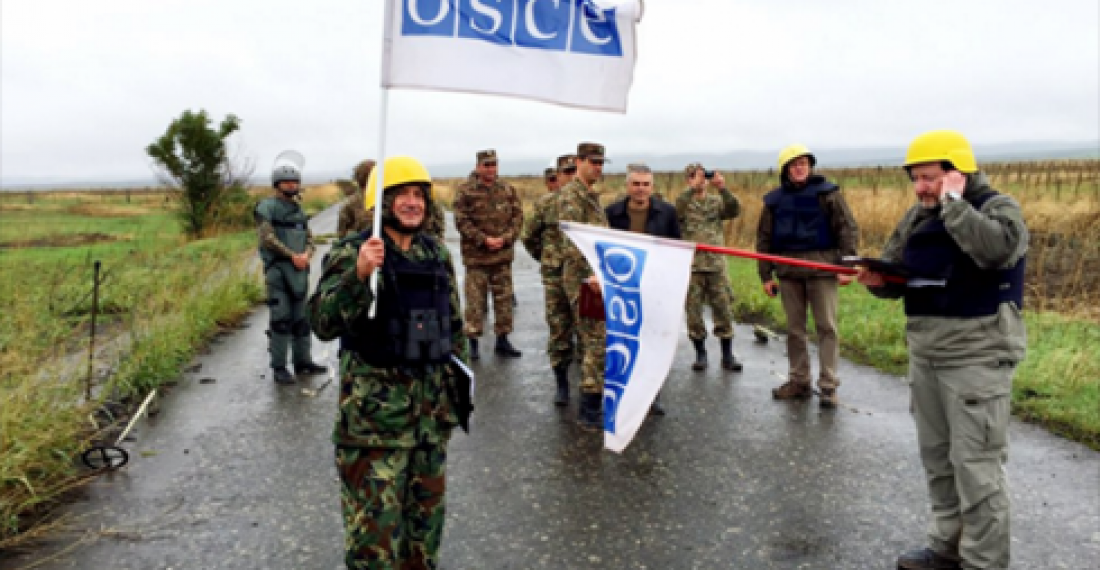The co-Chairmen of the OSCE Minsk group dealing with the Karabakh conflict have once more called on the sides in the conflict to respect the cease fire. The mediators, representing France, Russia and the United States were in the region last week to meet the leadership of Armenia and Azerbaijan and other stakeholders.
In a statement published on the OSCE website the mediators "expressed deep concern over the recent loss of life on the Line of Contact. The Co-Chairs call upon the Sides to take additional steps to reduce tensions, as agreed in Geneva, and to respect the ceasefire". They also called upon the sides "to refrain from inflammatory statements and provocative actions".
A number of casualties have been reported in cease fire violations since the begining of the year. Both sides accuse each other of hundreds of weekly cease fire violations.
In their statement the diplomats from the three Minsk group co-Chair countries reiterated their commitment "to helping the Sides find a peaceful solution to the conflict based on the core principles of the Helsinki Act, including the non-use of force, territorial integrity, and the equal rights and self-determination of peoples".
They welcomed "the parties' expressed intention to continue intensive negotiations, taking into account the current electoral period".
source: commonspace.eu with osce.org
photo: OSCE monitors regularly visit the line of contact in the Karabakh conflict zone (archive picture)







